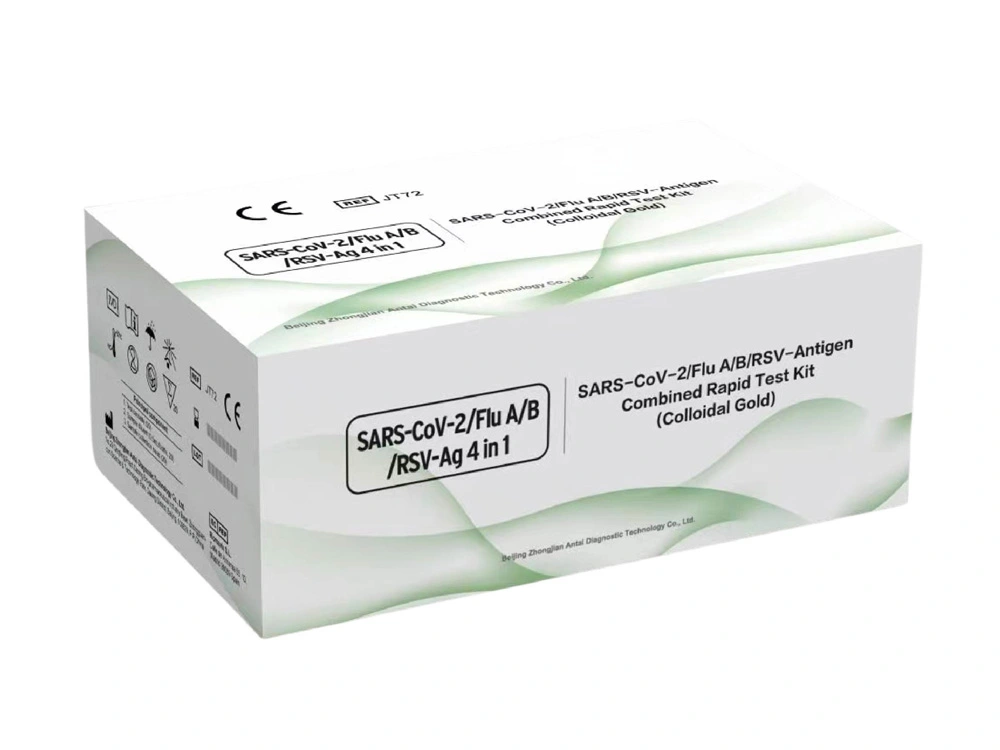A Respiratory Virus Antigen Combined Test is a diagnostic tool used to detect the presence of specific antigens or proteins of influenza, COVID-19, or RSV respiratory viruses in a patient's sample.

The Respiratory virus Antigen Combined Test is used to detect viral respiratory infectious diseases with similar symptoms after early viral infection, helping to distinguish the type of infectious virus. Assist in adopting appropriate plans to expand detection capabilities in susceptible seasons. COVID-19 antigen testing can be used as a direct basis for early infection of COVID-19; influenza A and B antigen testing can be used as a reference for clinical diagnosis; respiratory syncytial virus (RSV) antigen testing can help diagnose infants and susceptible groups.
1. Joint detection of multiple indicators can achieve twice the result with half the effort
2. The sample can be taken from the anterior nasal swab, convenient for sampling
3. Reliable performance and accuracy
4. Test results within 15-20 minutes
5. The operation is simple and fast, and the swab sample can be tested simply by extracting it
6. Room temperature storage without cold chain
| Product name | Respiratory virus Antigen Combined Test |
| Format/Shape | Cassette |
| Strip size | The regular strip is 3~4 mm |
| Specimen | swab |
| Time to result | within 15-20 minutes |
| Service | OEM available |
| Shelf life/validity | 24 months |
| Certifications | CE, ISO13485 |
| Storage | between 4-30°C |
| Packing | aluminum foil pouch |
A Respiratory Virus Antigen Combined Test is a diagnostic tool used to detect the presence of specific antigens or proteins of influenza, COVID-19, or RSV respiratory viruses in a patient's sample.
The test is usually performed by collecting a sample from the patient's respiratory tract, typically through a nasal or throat swab.
A positive result indicates that the patient is likely infected with the respiratory virus for which the test was conducted. However, it's important to confirm the result with additional testing, especially if the patient has symptoms consistent with a respiratory virus infection.
A negative result means that the test did not detect the presence of the specific viral antigen in the sample. However, it does not necessarily mean that the person is not infected with a respiratory virus, especially if they have symptoms consistent with a respiratory virus infection.
Testing is typically recommended for individuals who have symptoms consistent with a respiratory virus infection, have been in close contact with someone who has a confirmed infection, or are at high risk of severe illness.
The test is generally safe and well-tolerated. Some people may experience minor discomfort or bleeding during the sample collection process.
 Email Us:
Email Us:  TEL:
TEL:  2nd floor, No. 3, 8th Street, Qiantang Area, Hangzhou, Zhejiang, China
2nd floor, No. 3, 8th Street, Qiantang Area, Hangzhou, Zhejiang, China